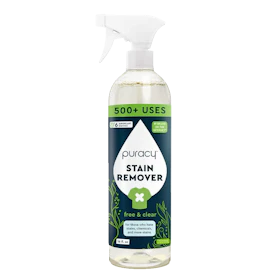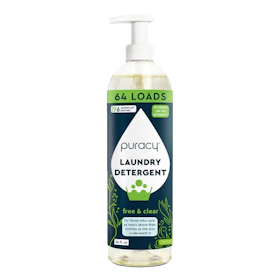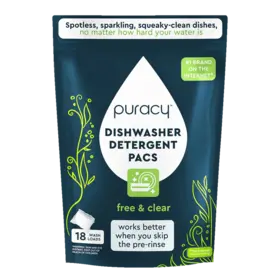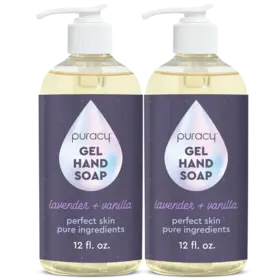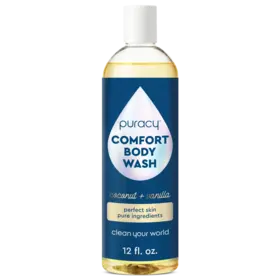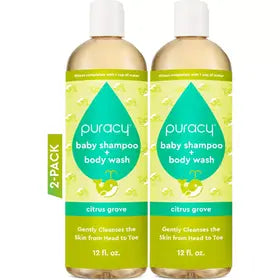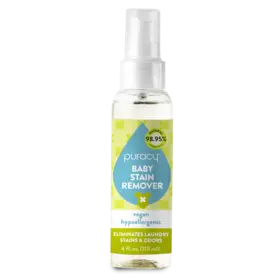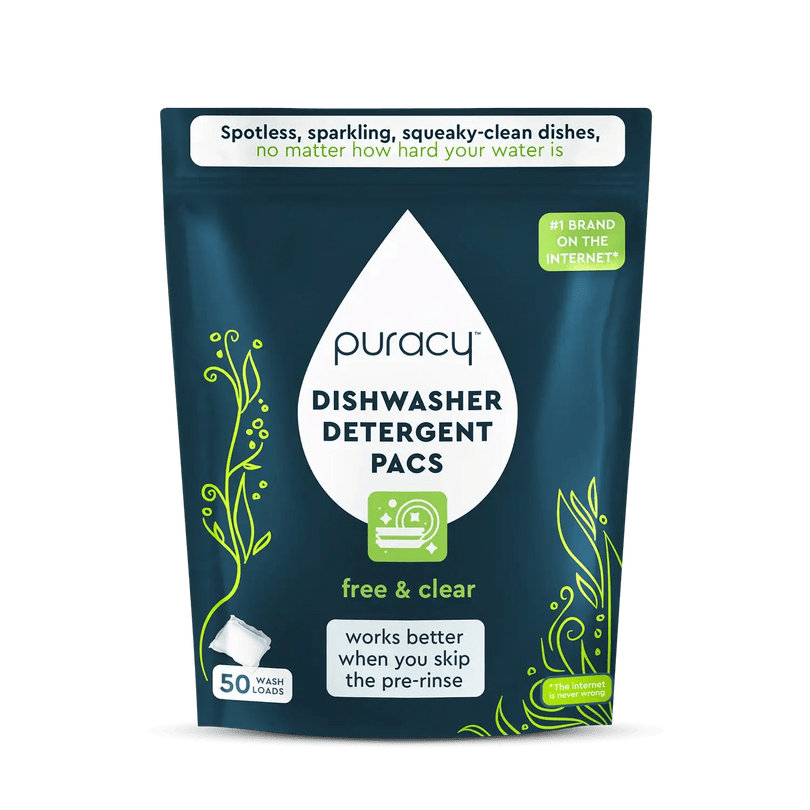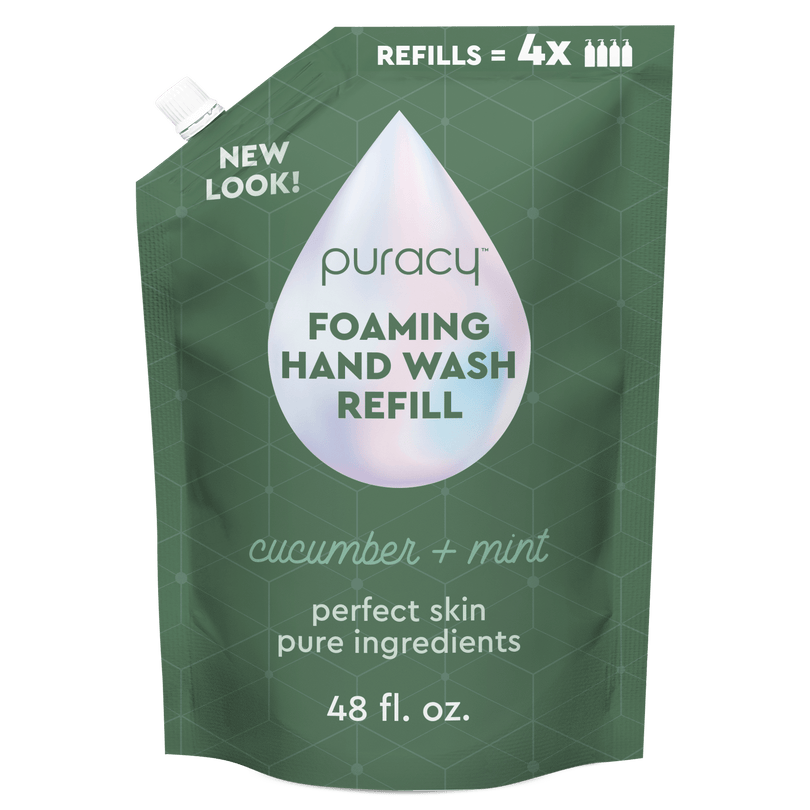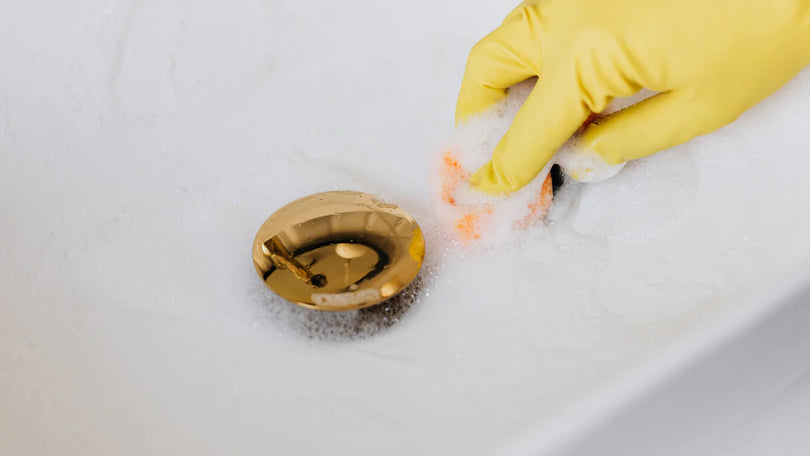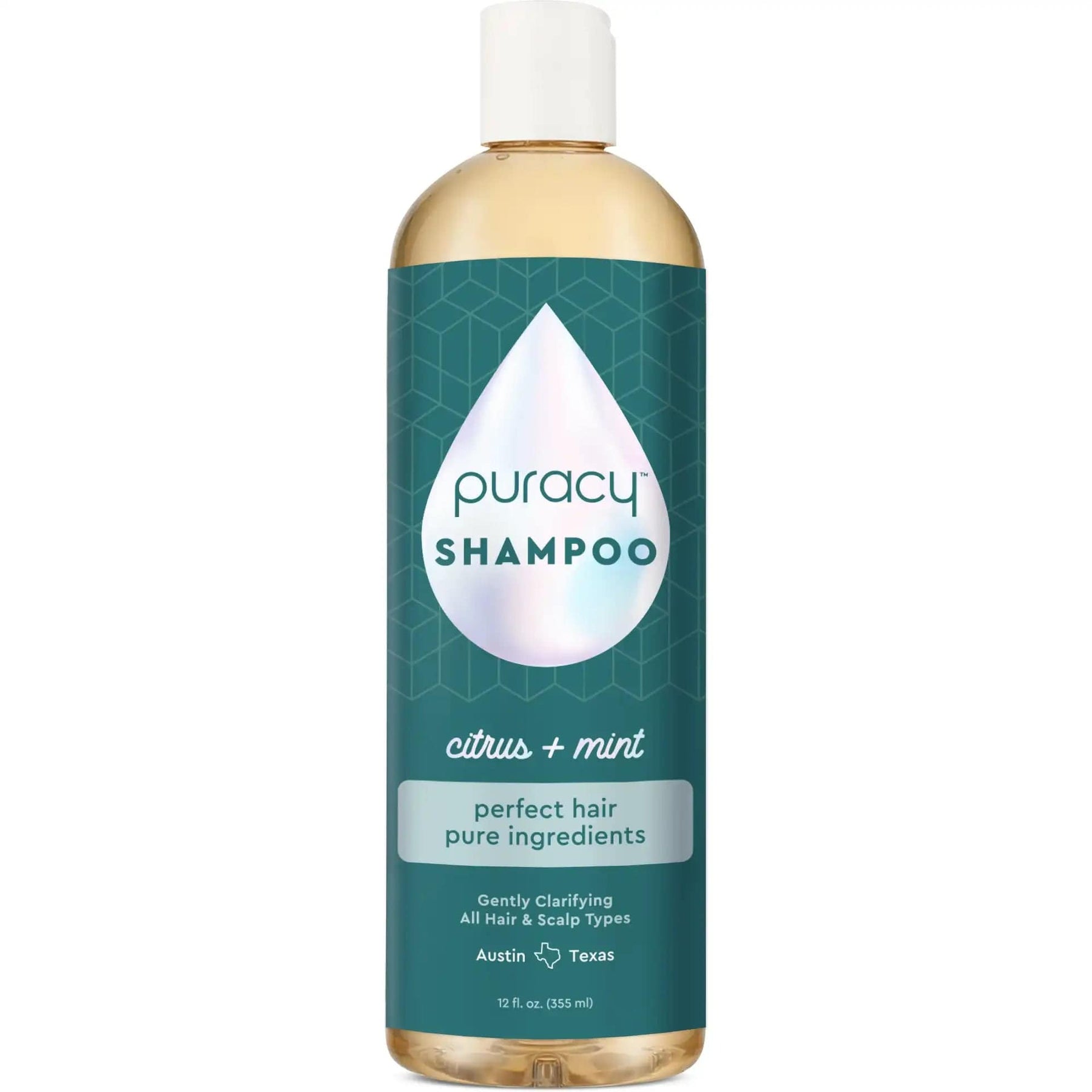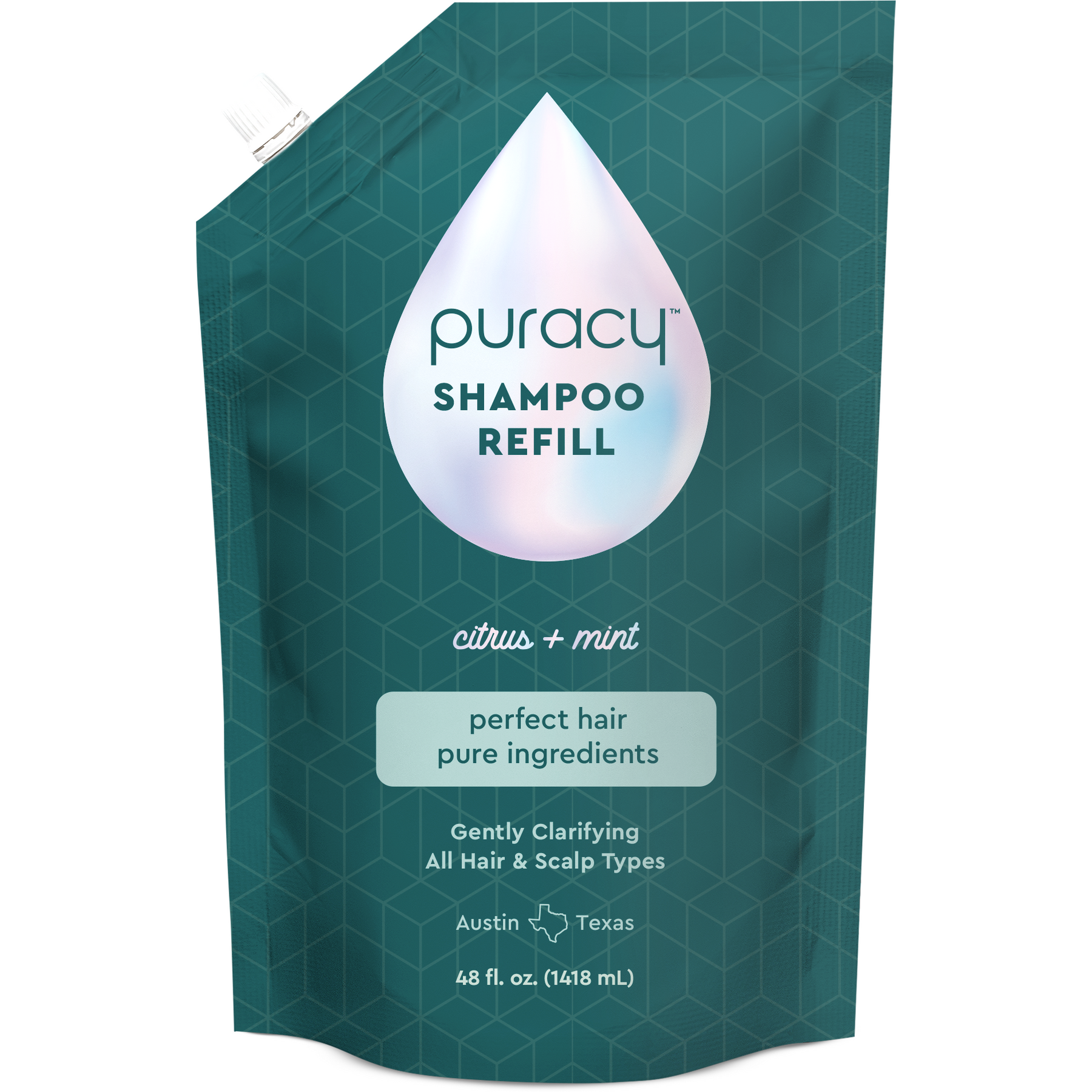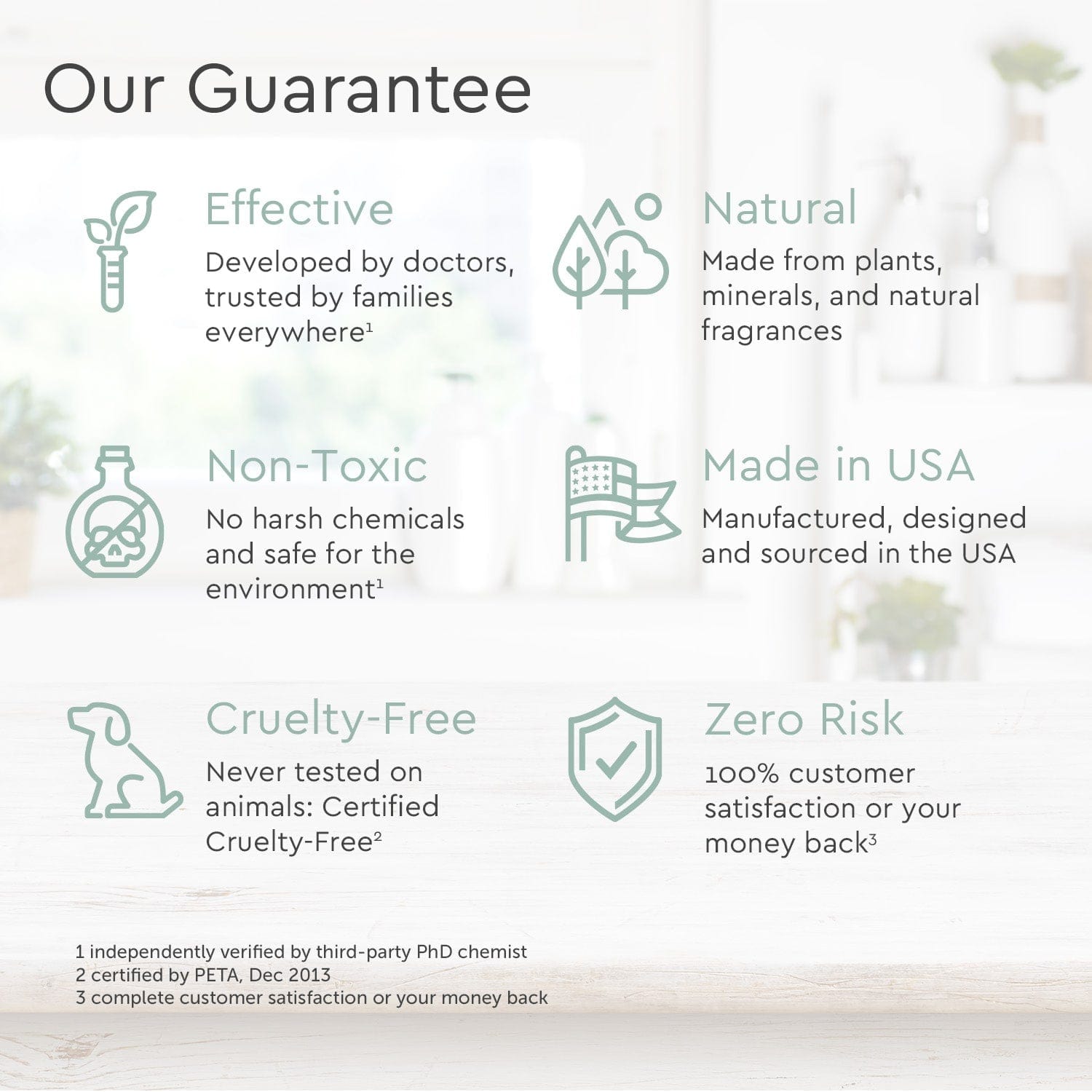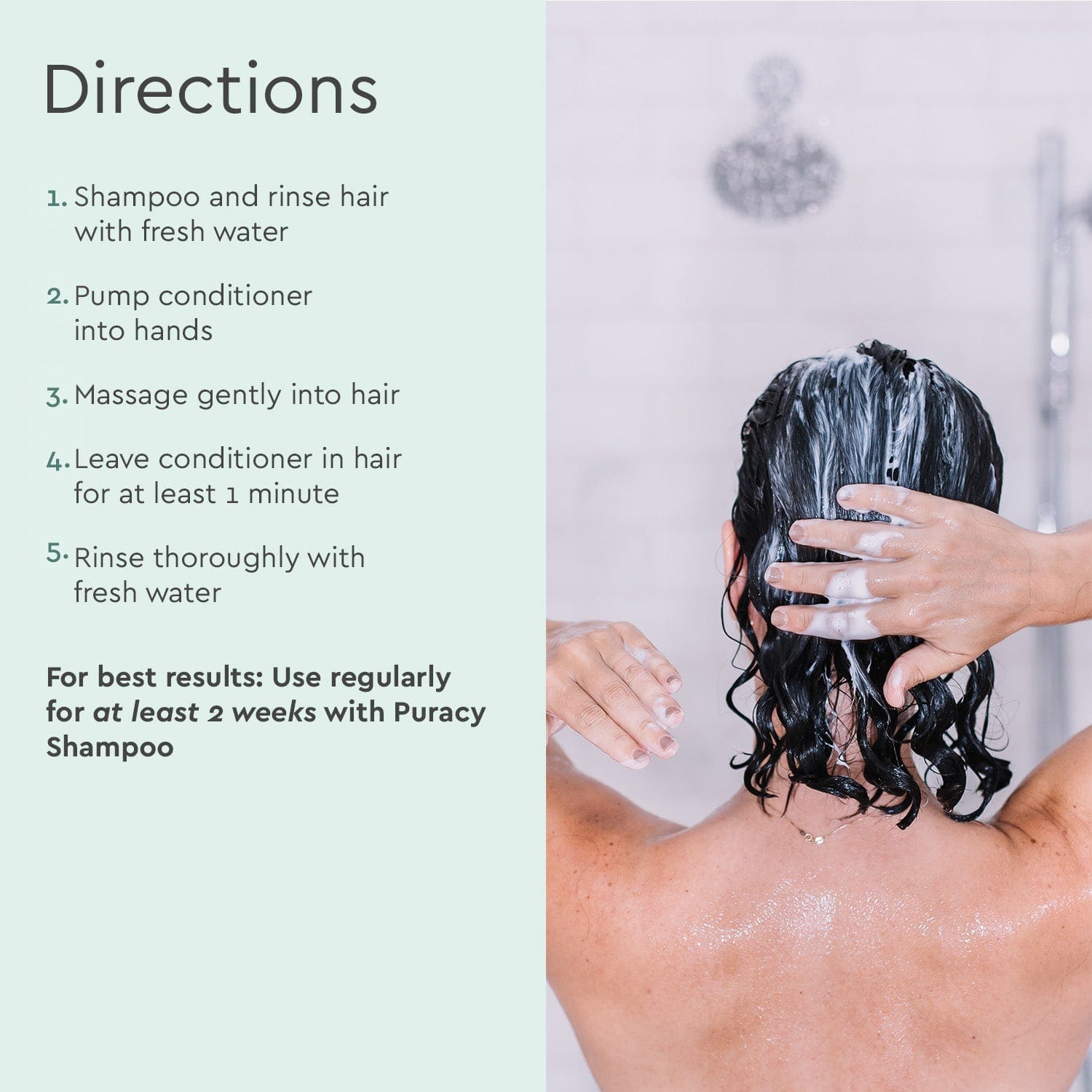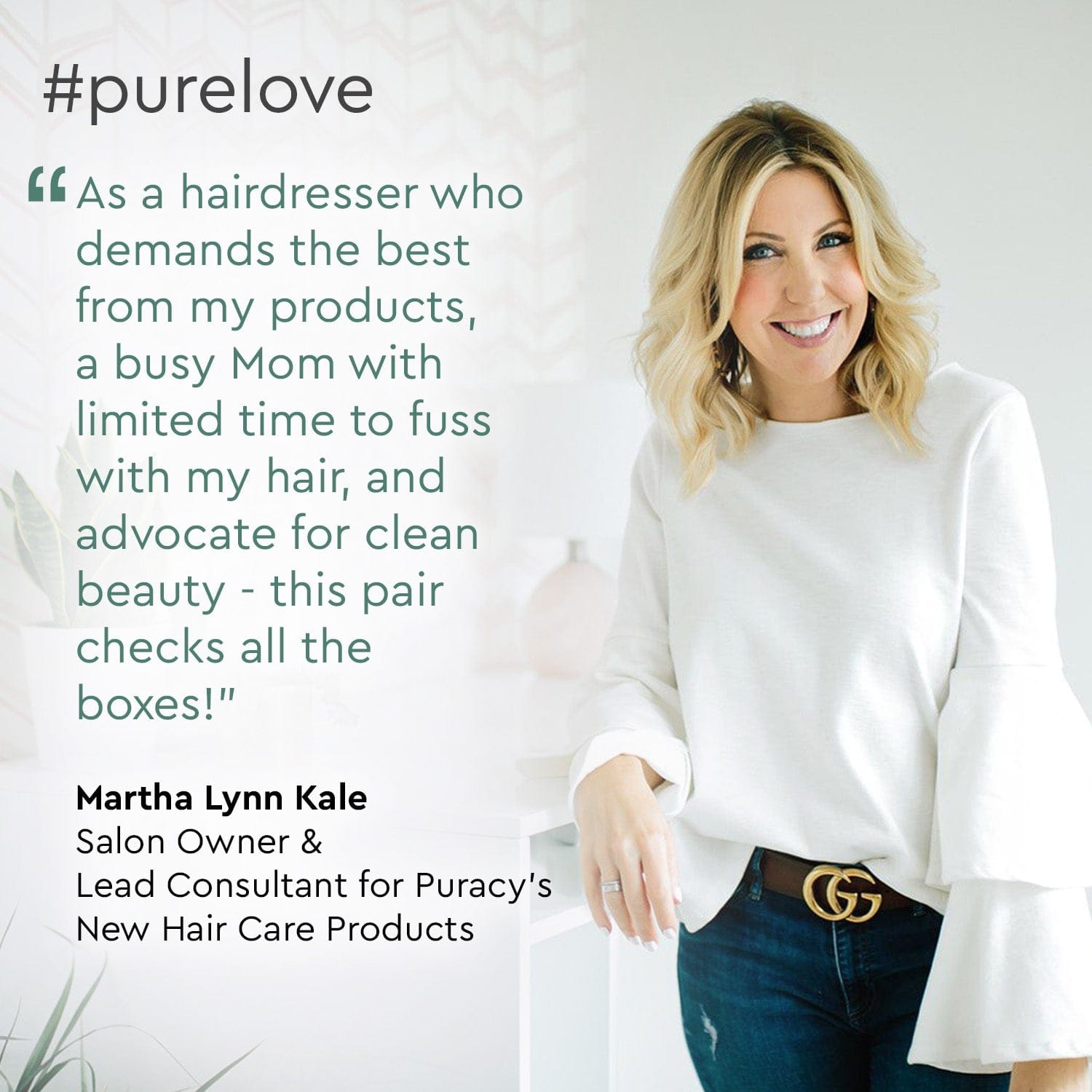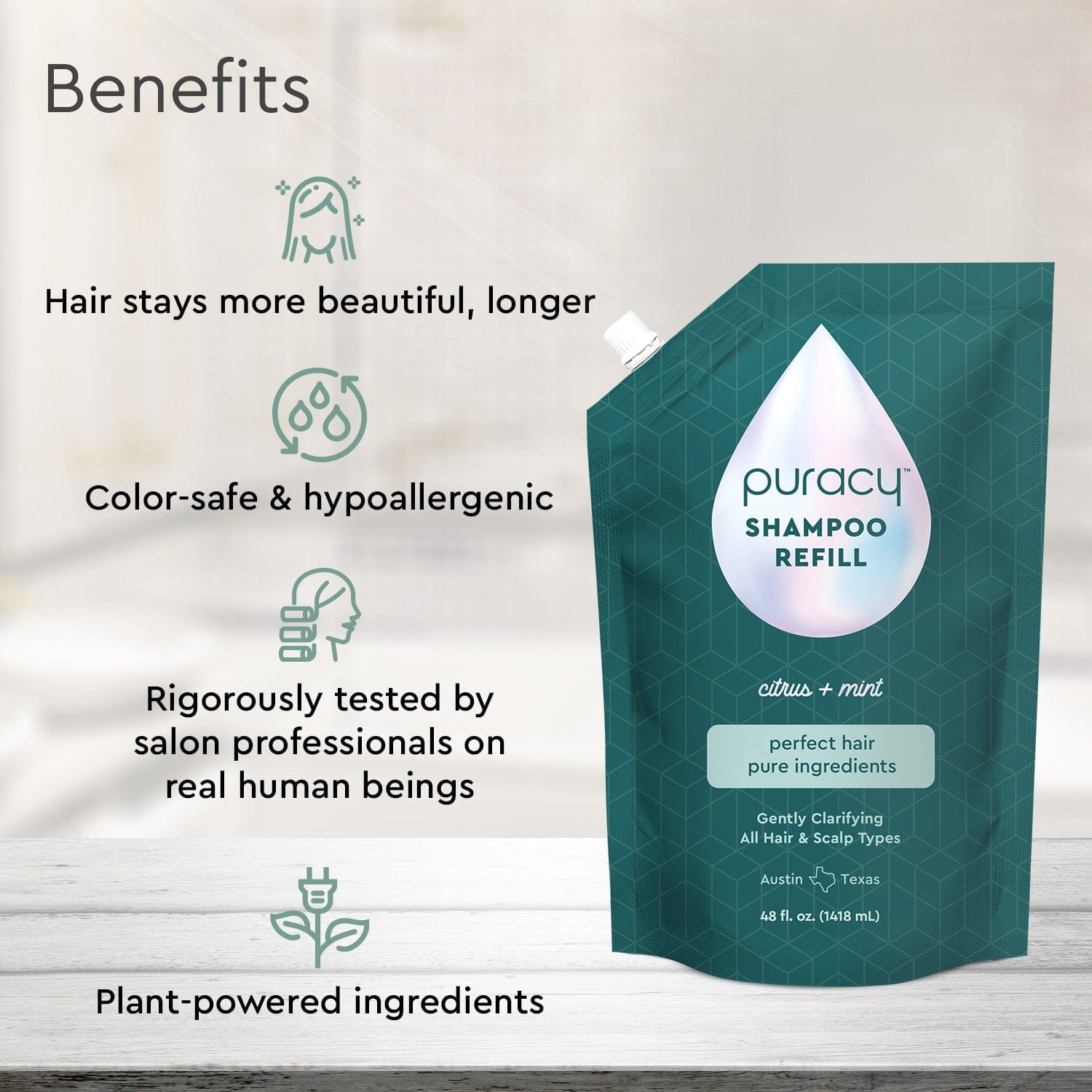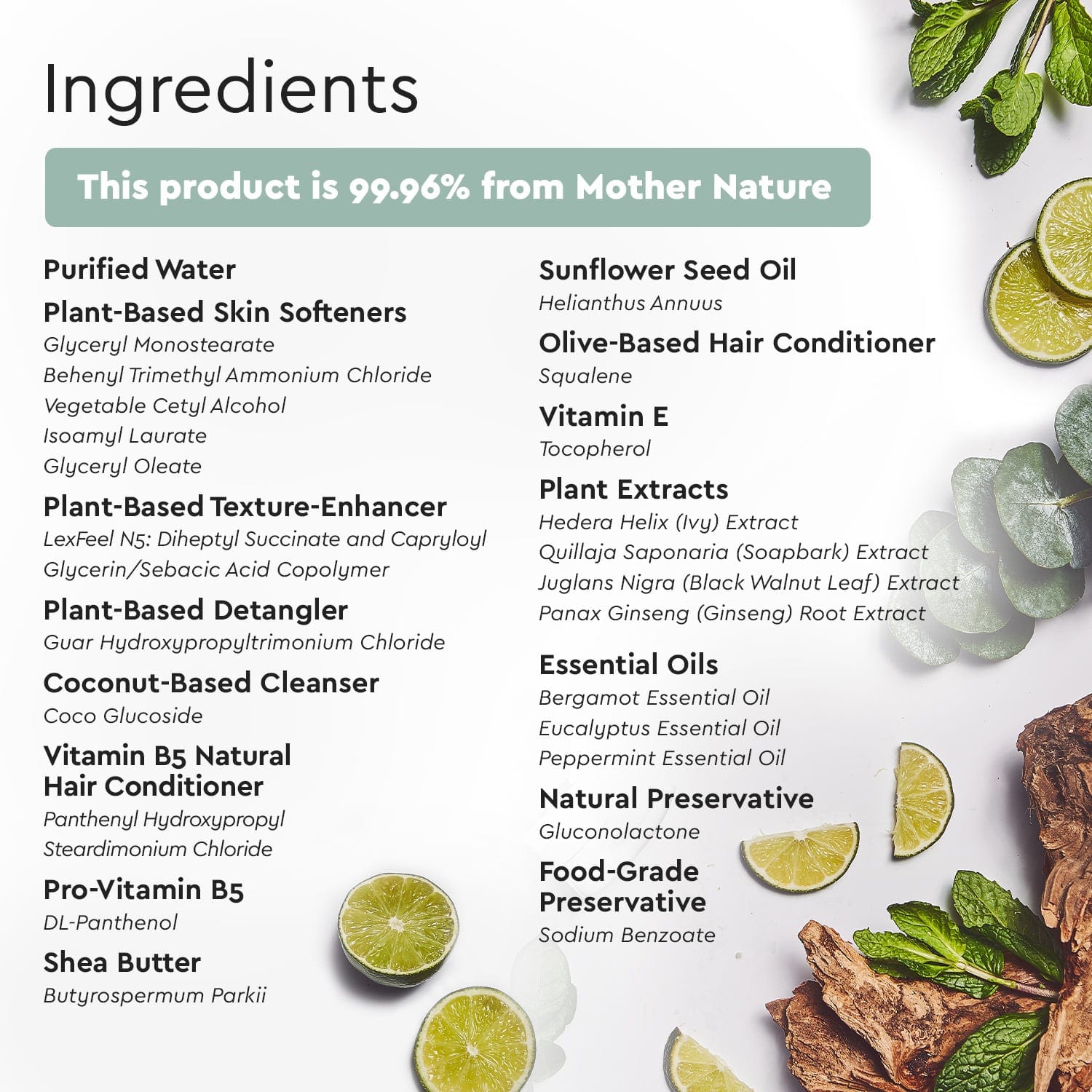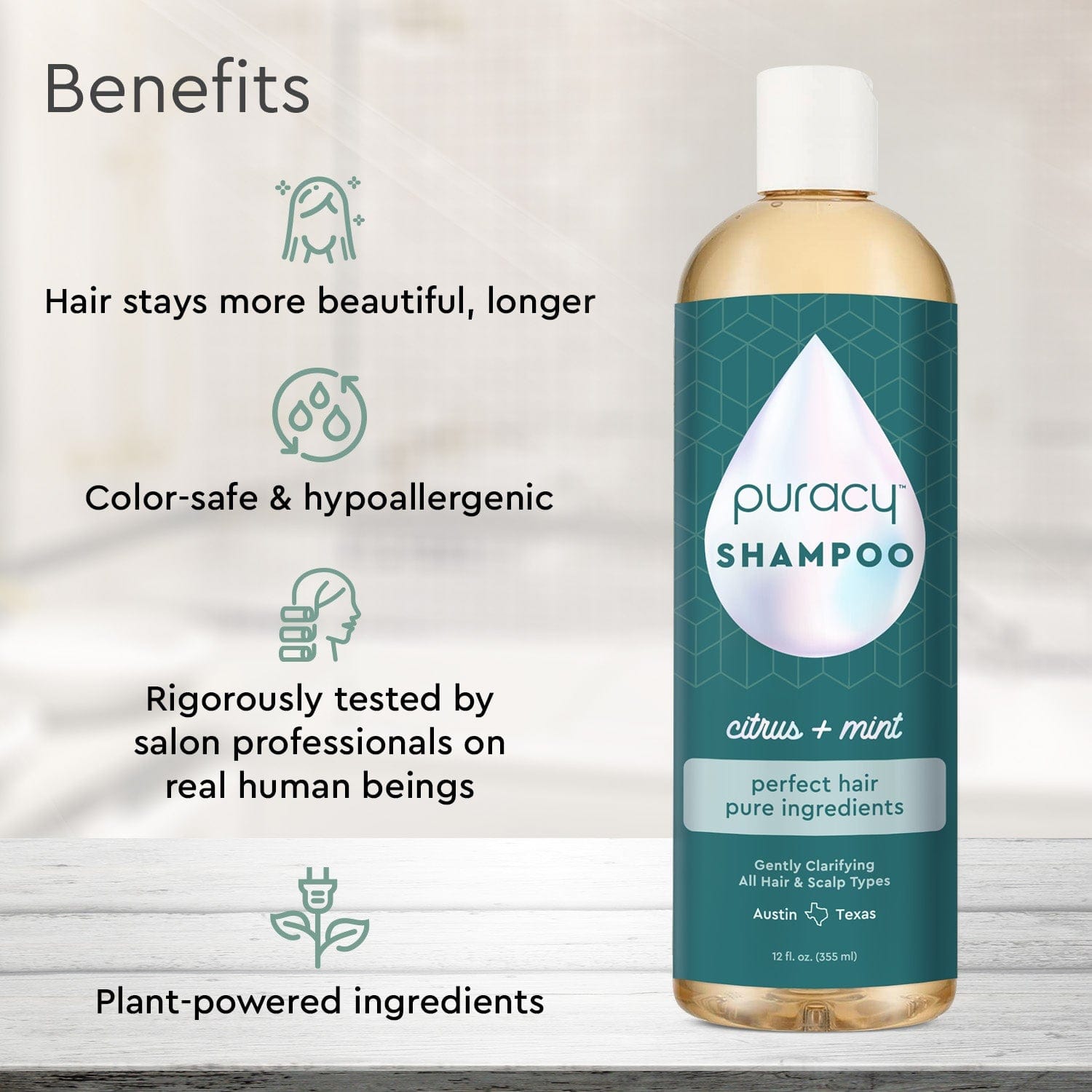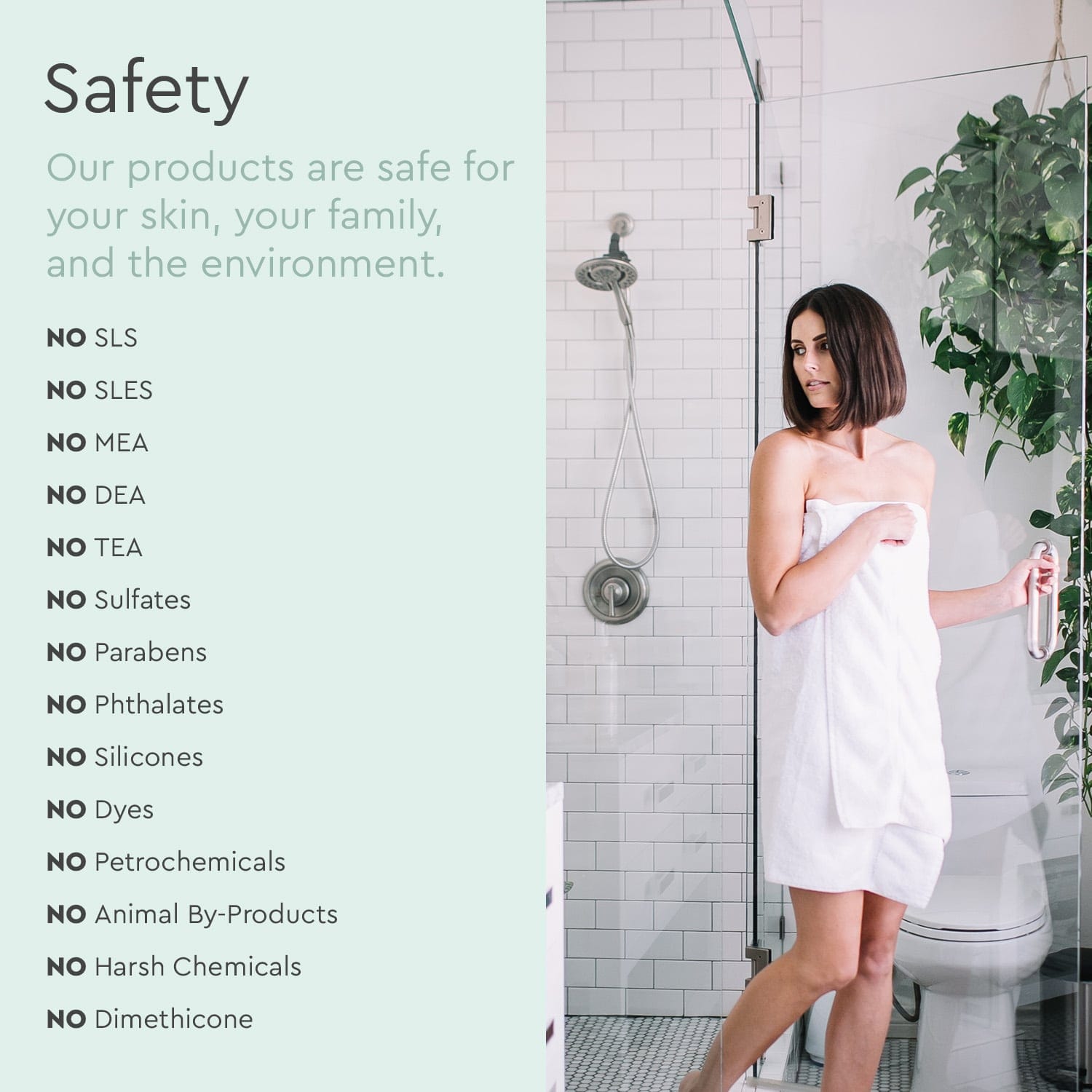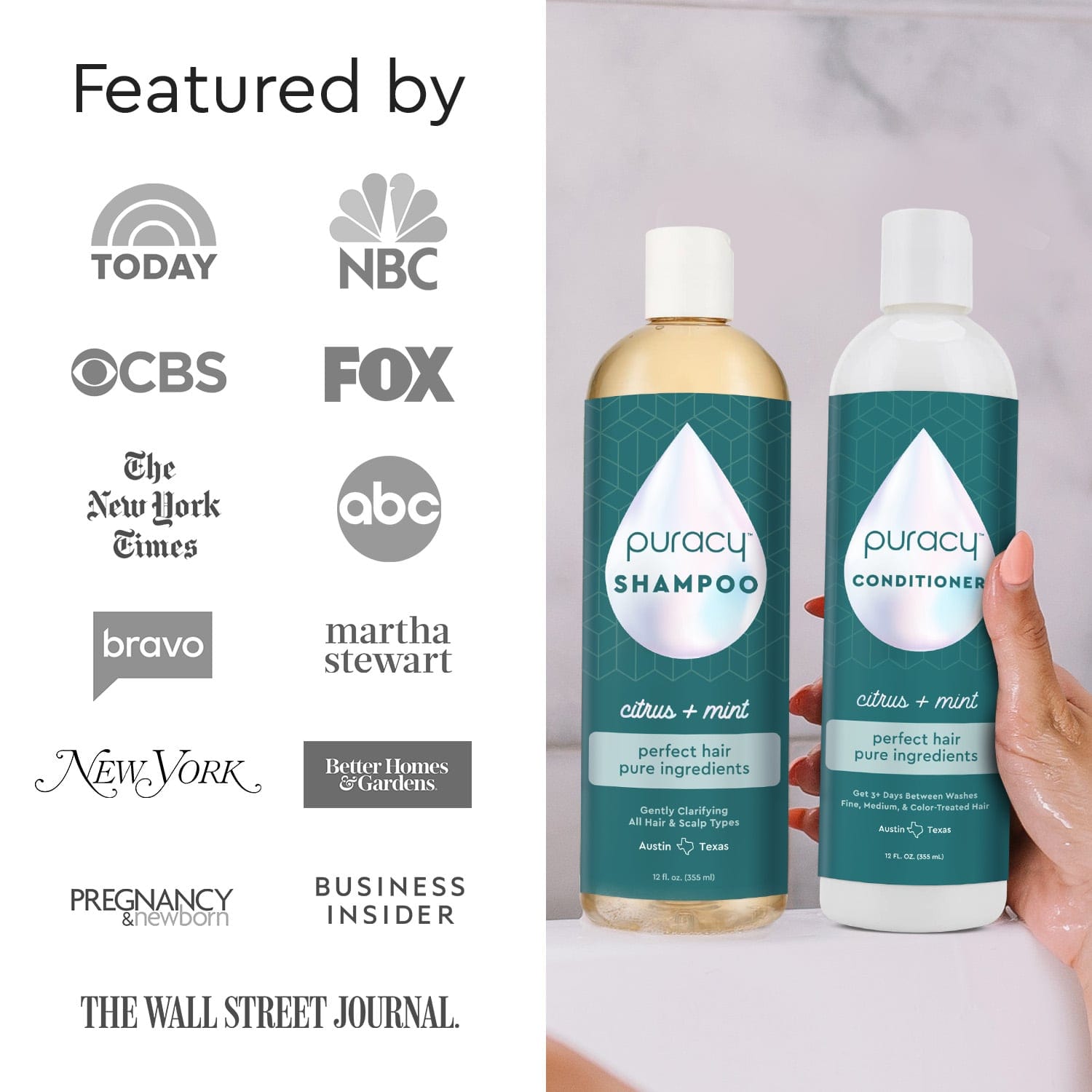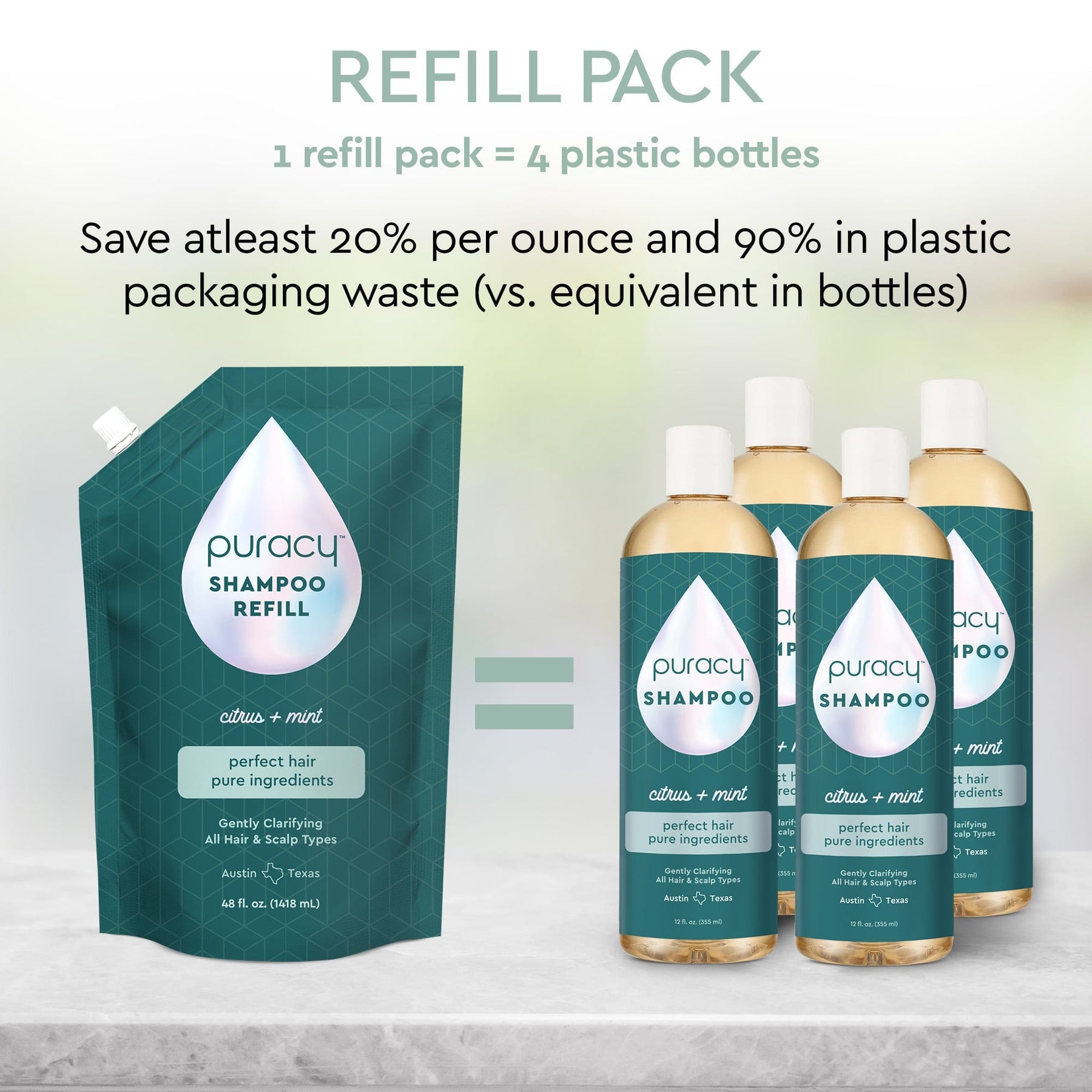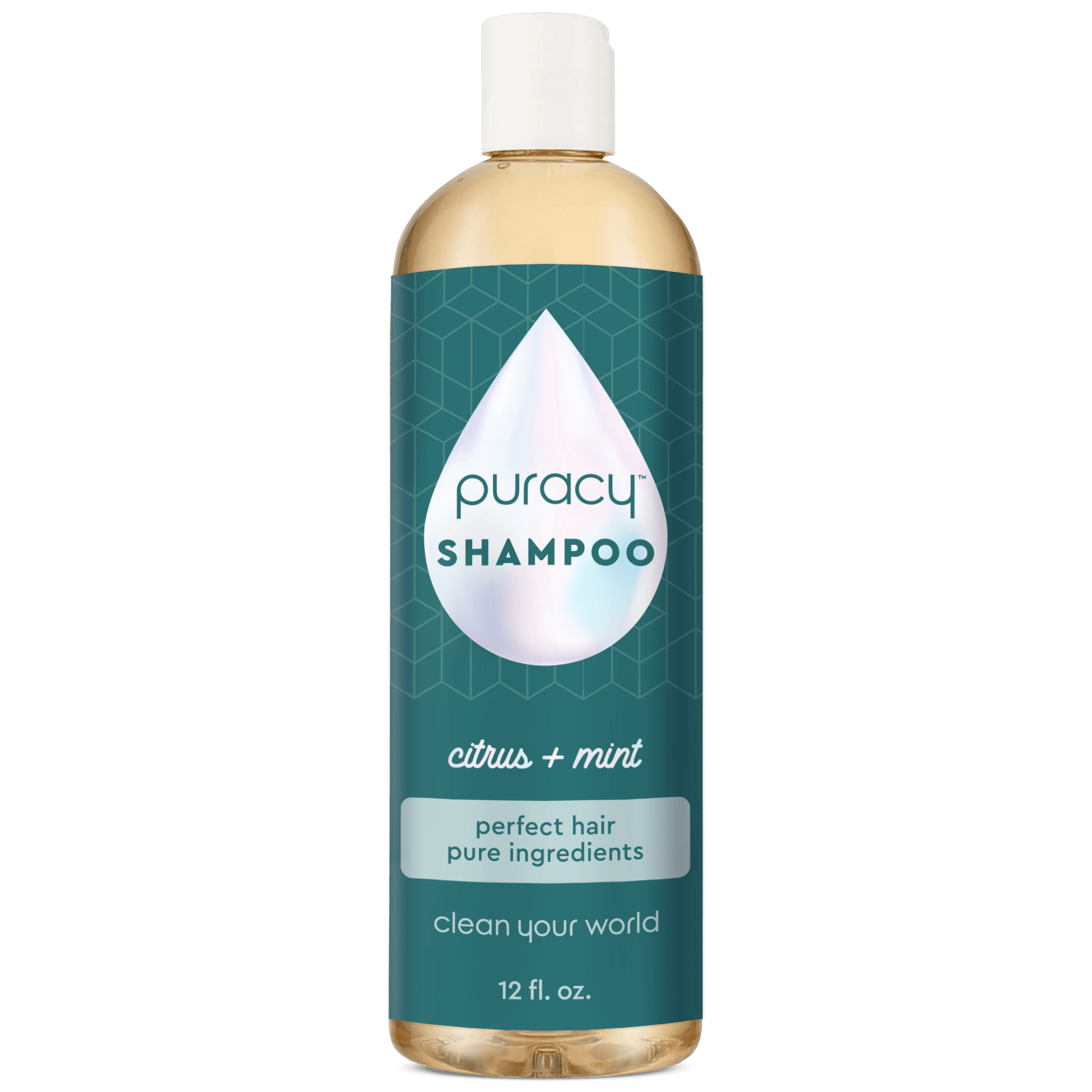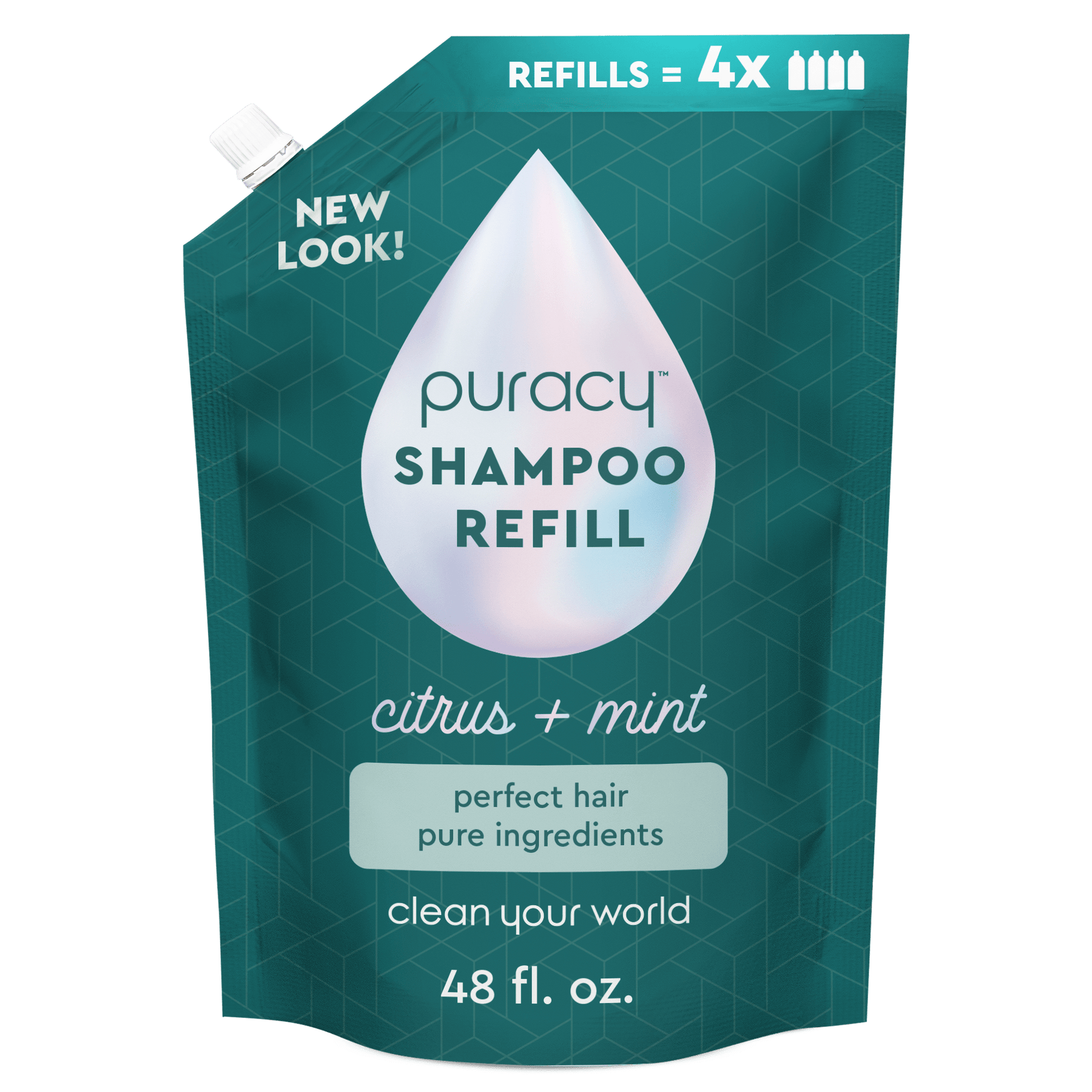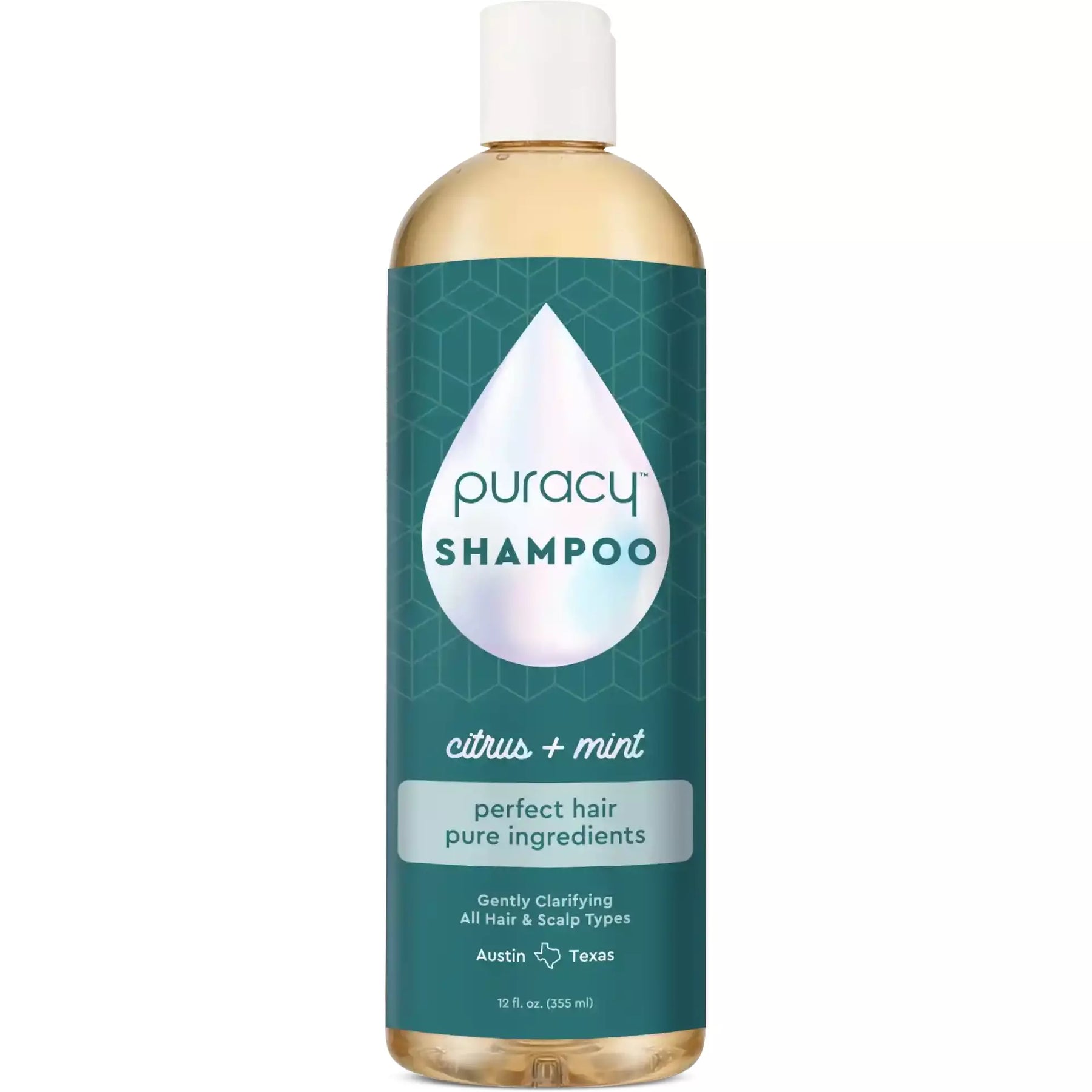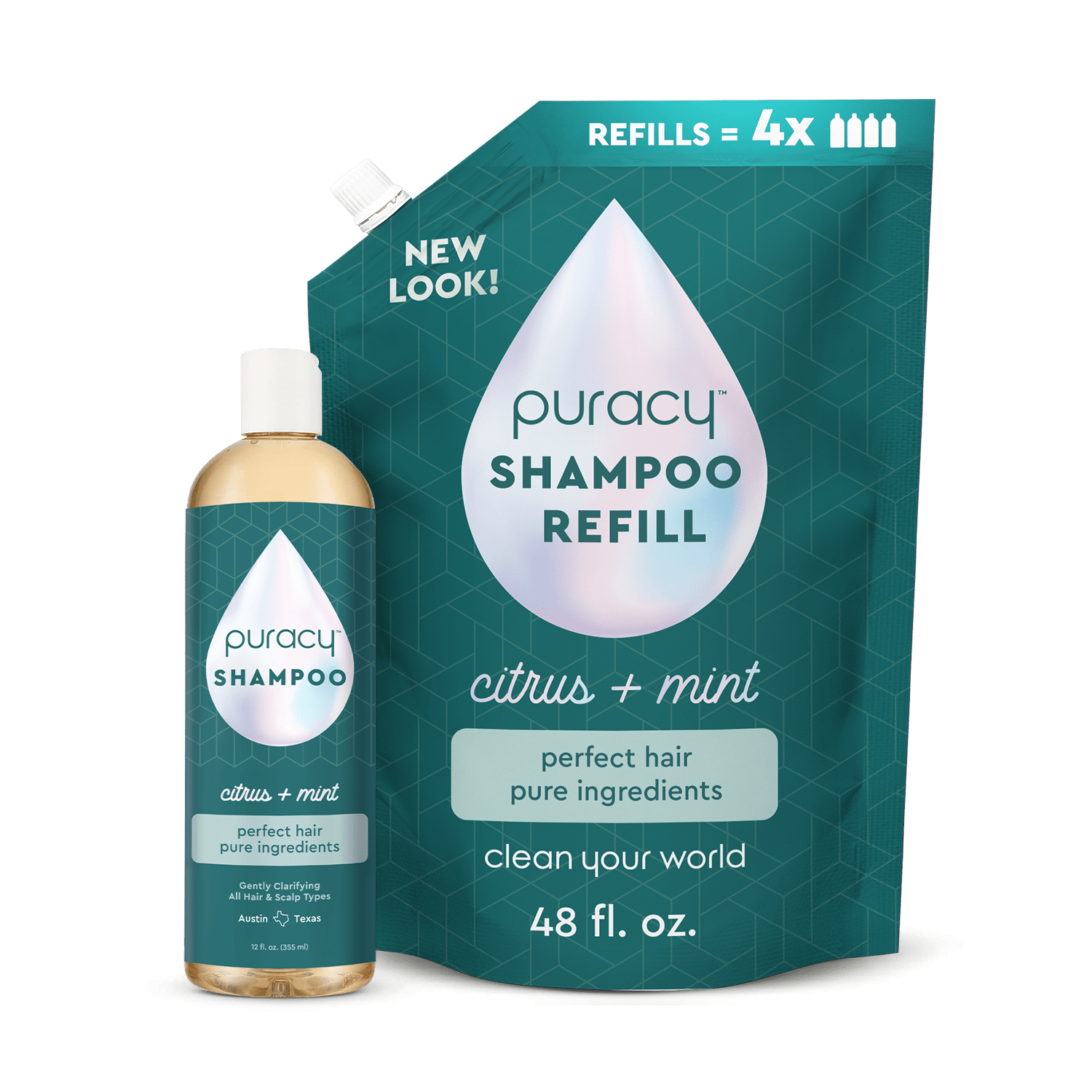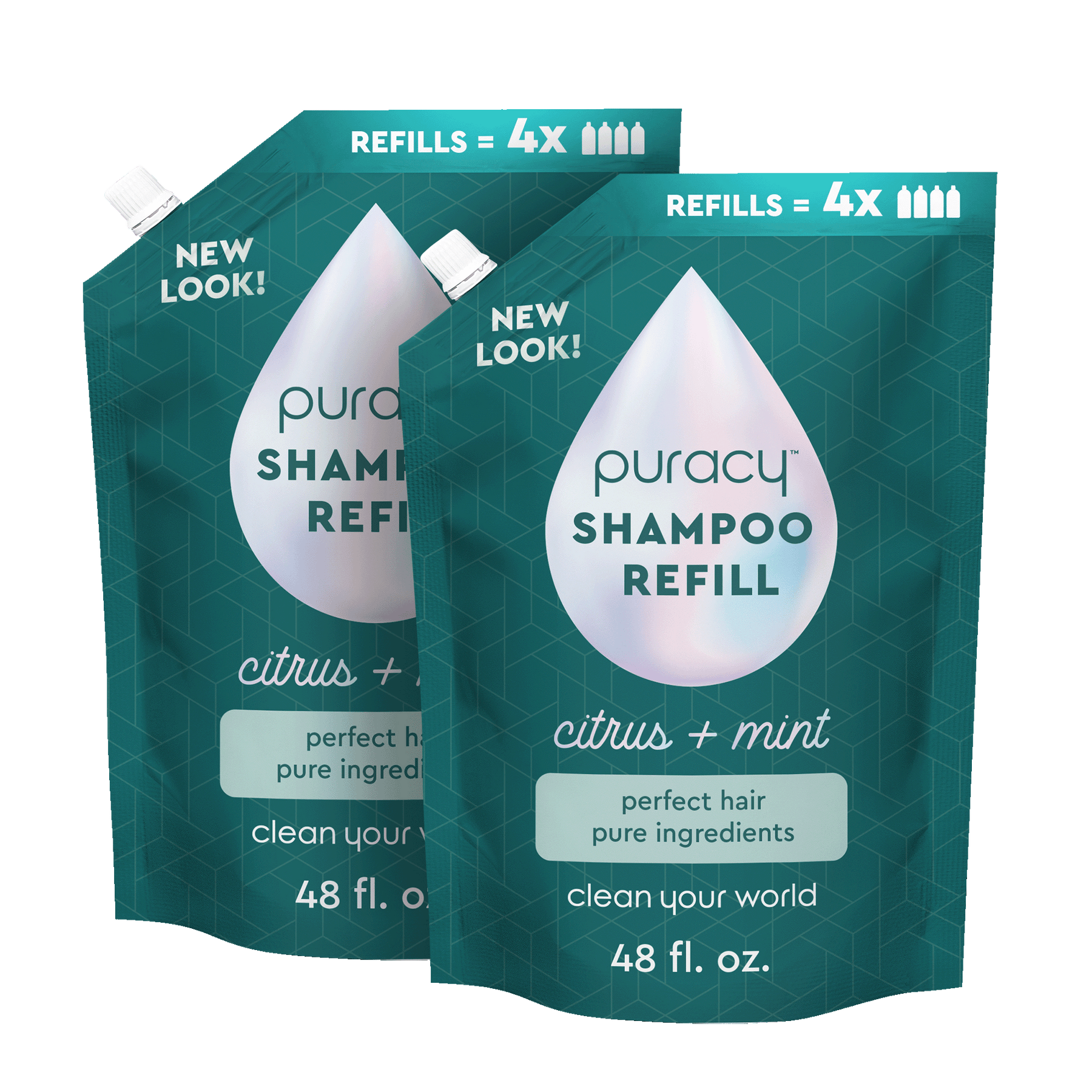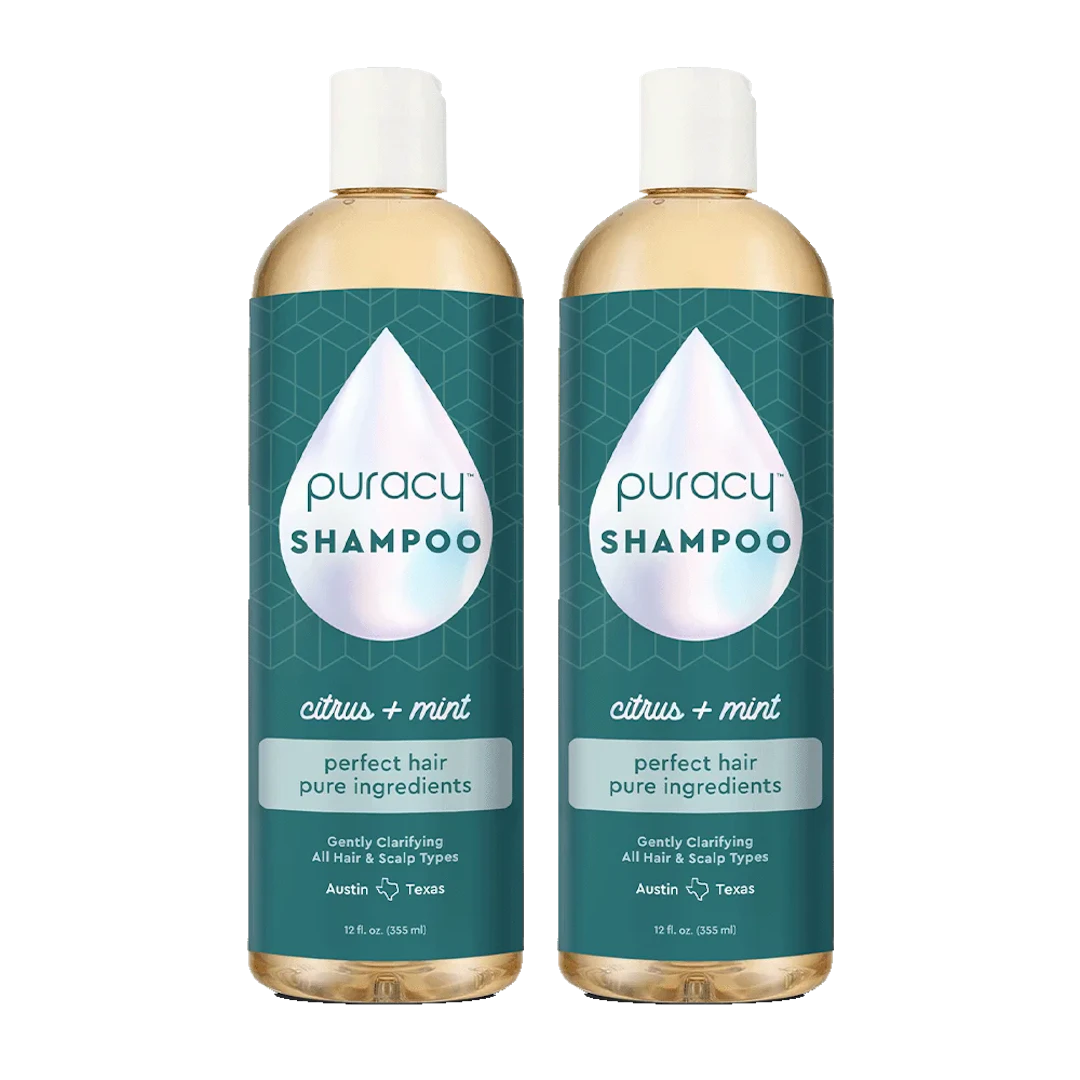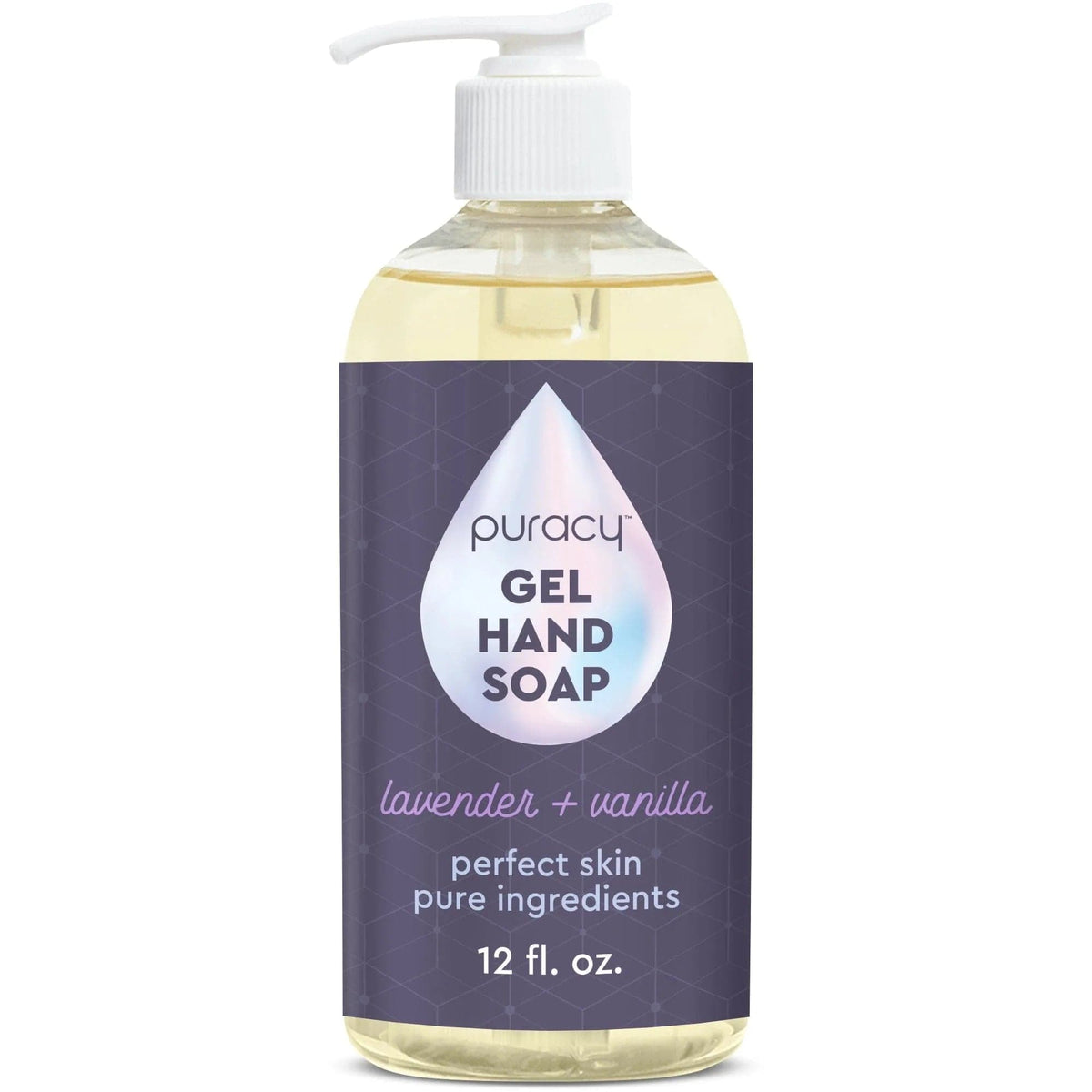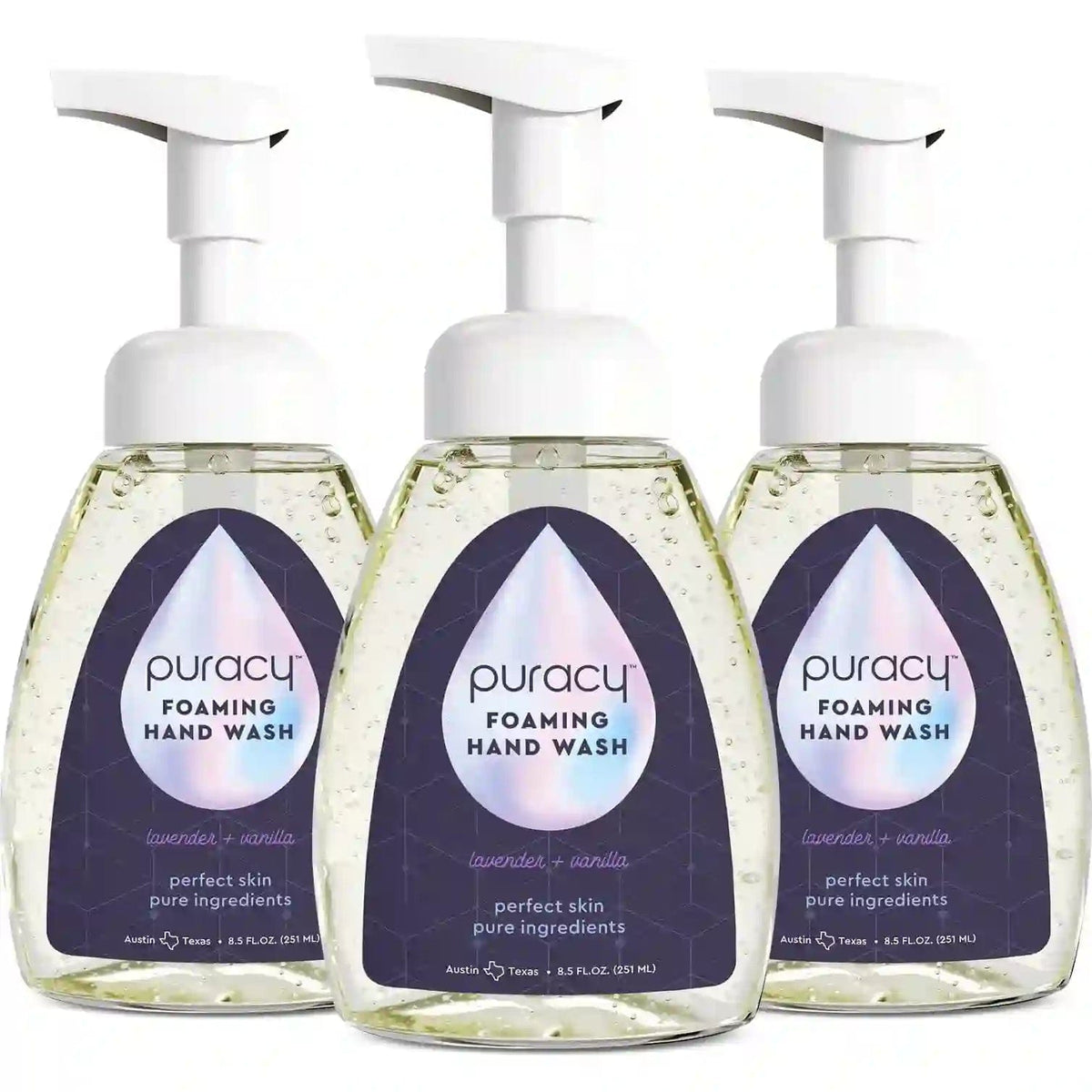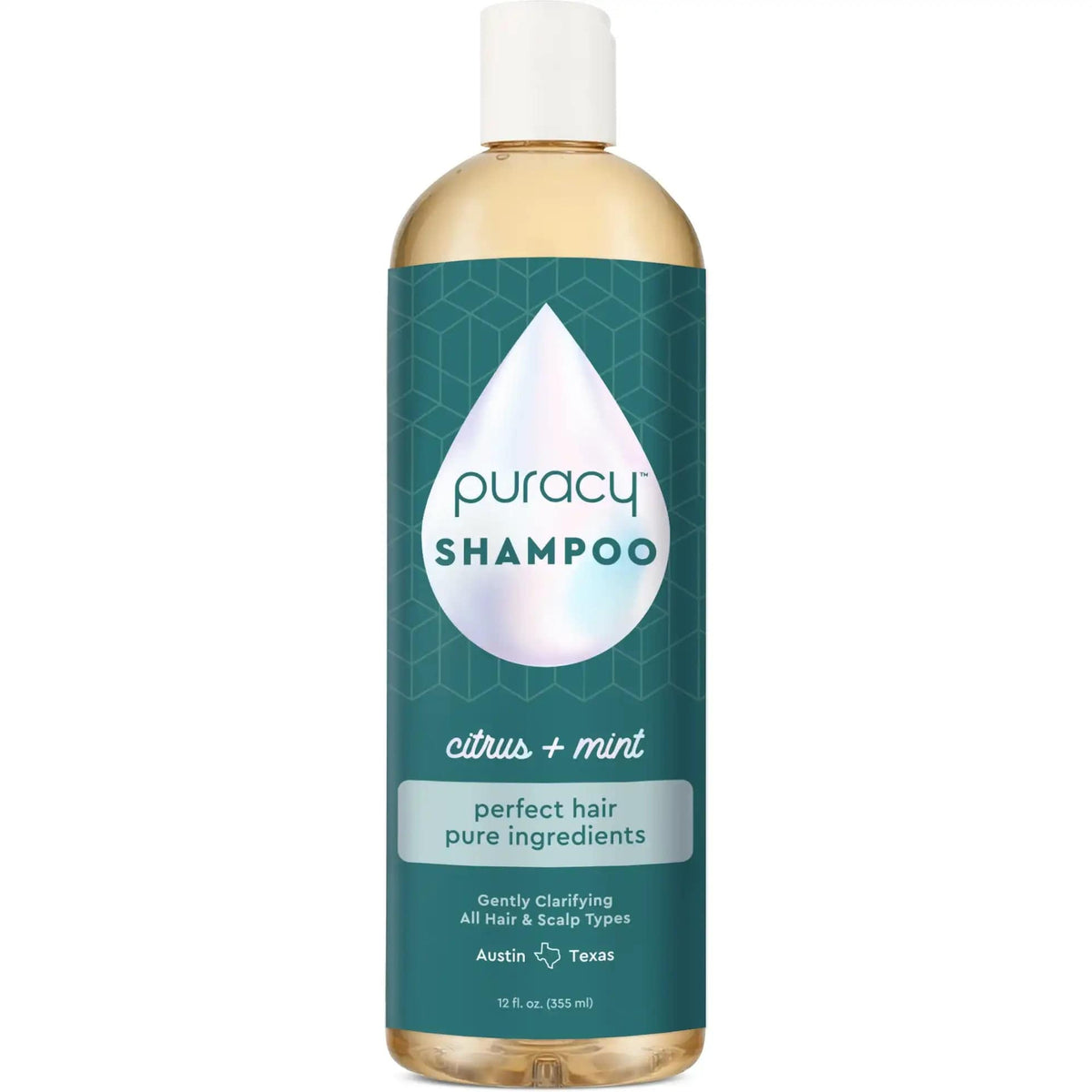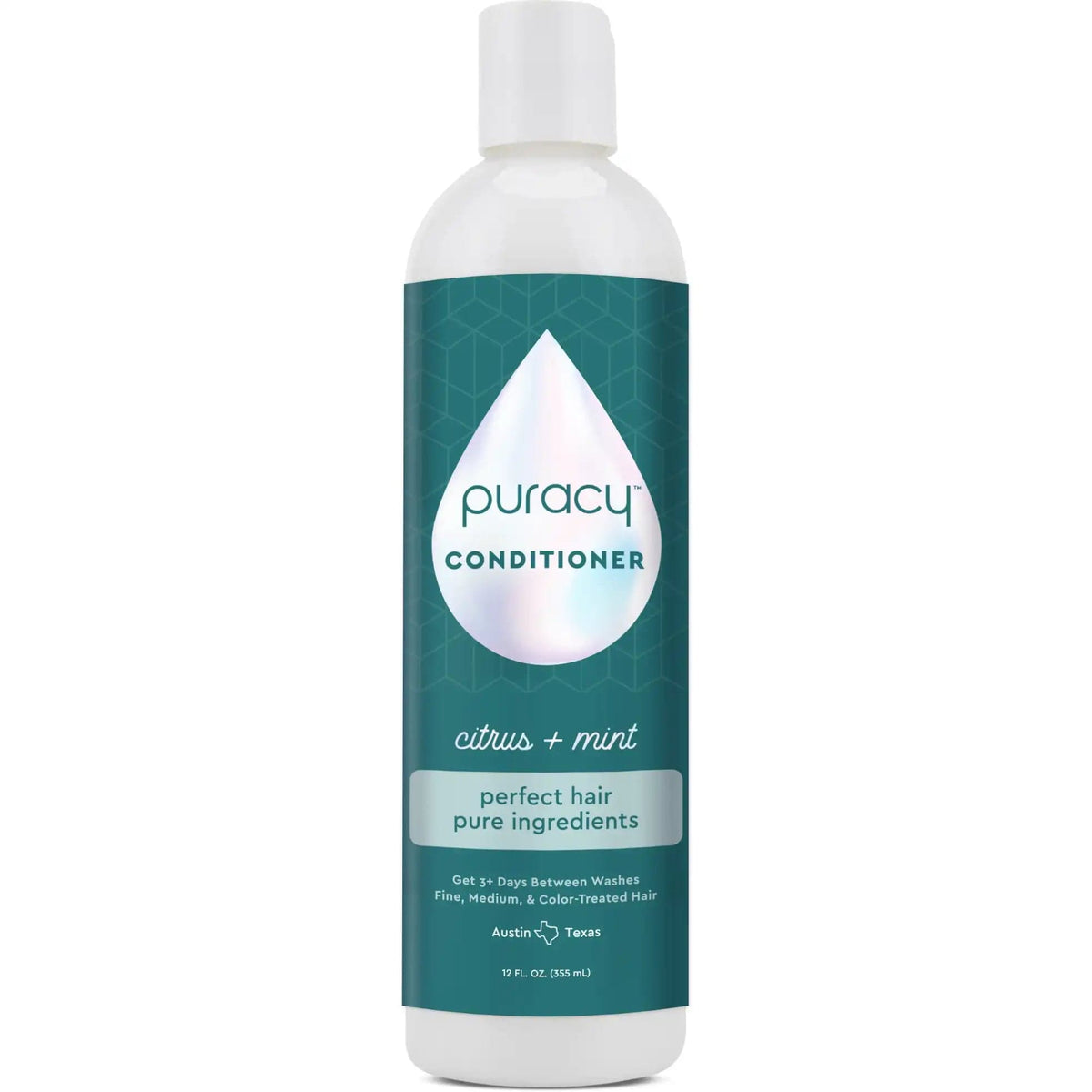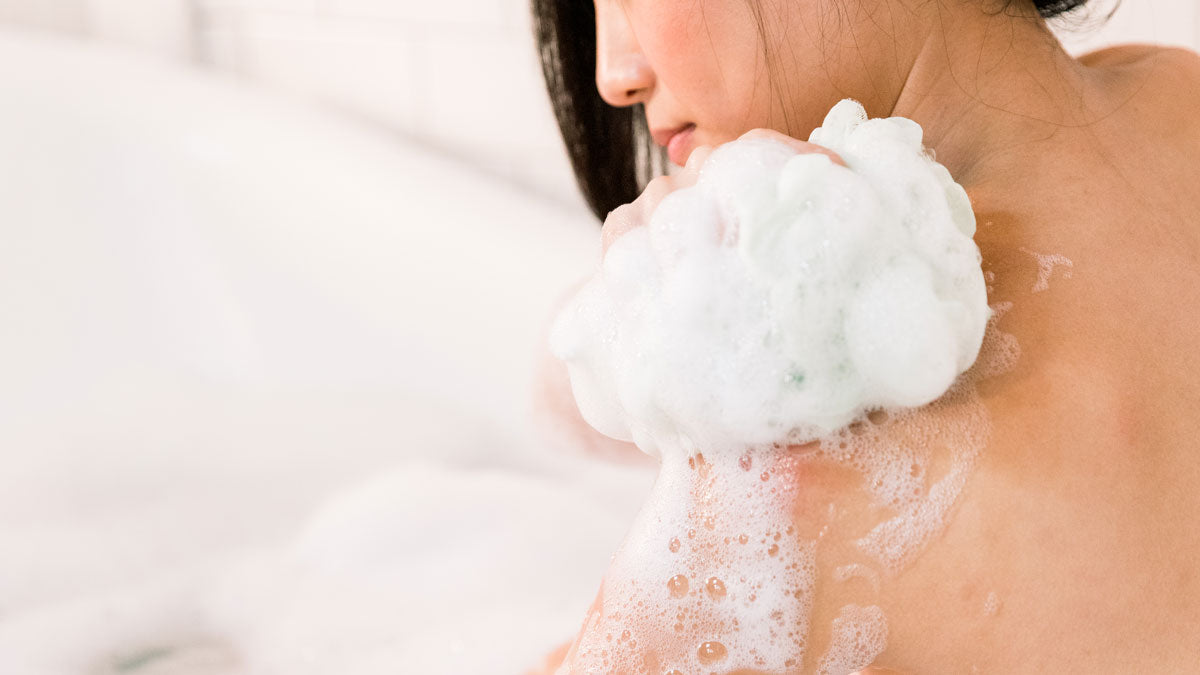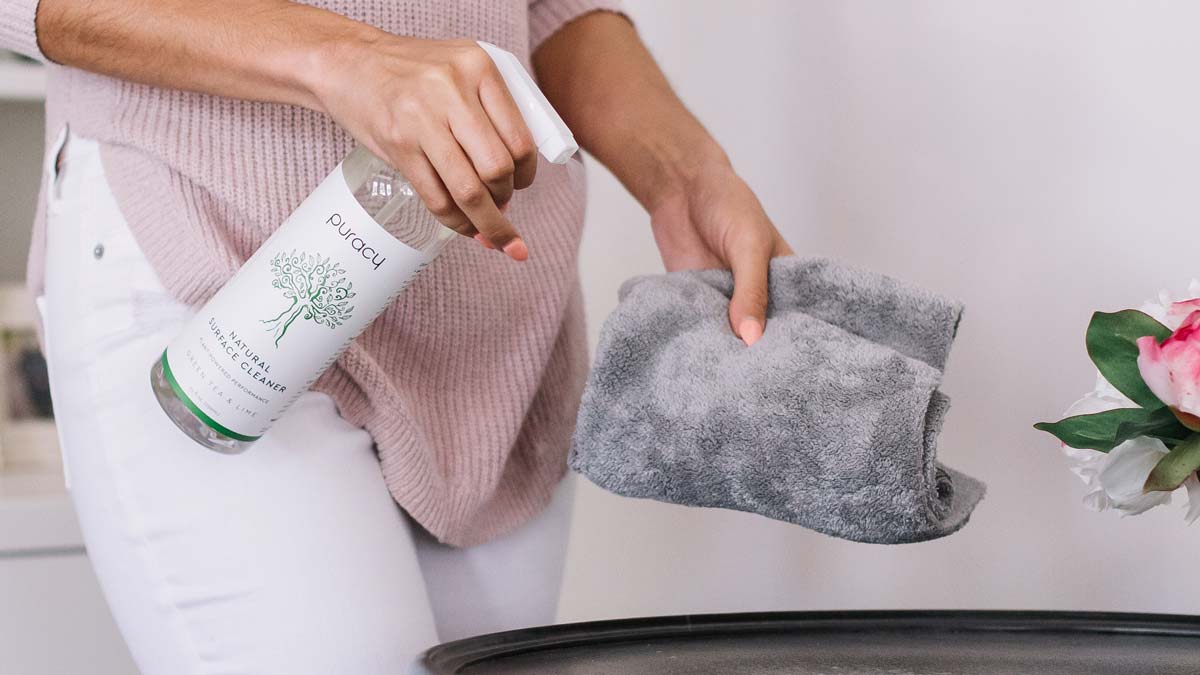There are hundreds of dimethicone uses, so it’s likely you’ve seen it on your personal care labels. However, there are environmental and sustainability concerns related to its use. Is it safe to use, and if not, what are some alternatives?
What Is Dimethicone?
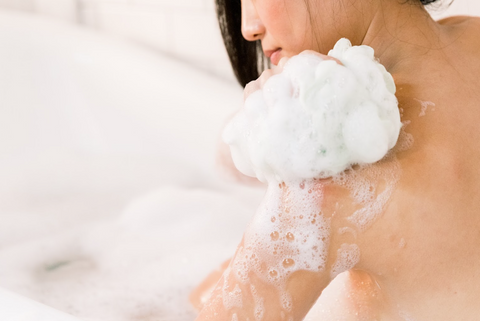
Dimethicone, also known as polydimethylsiloxane (PDMS), is a silicone-based polymer derived from silica, a natural component found in sand and quartz. With its unique properties and versatility, the moisturizing ingredient has become a popular ingredient in personal care products, improving texture, feel, and performance.
Is Dimethicone Natural?

Dimethicone is a silicone. Therefore, it's synthetic and absolutely not natural.
Dimethicone Uses
Dimethicone in skin care and hair care products help form a protective layer along skin, improving water retention.
For example, most makeup primers use some form of this moisturizing ingredient (like polydimethylsiloxane) because the silicone-based polymer molecules are too large to be absorbed by skin. They instead leave a silky, slippery residue behind.
Shampoo with this moisturizing ingredient and other hair products also coat hair cuticles, improve detangling, and smooth tresses.
Safe Puracy Products
Natural Shampoo
Is Dimethicone Safe?

The ingredient is widely regarded as chemically and physically inert. It's also not known as a skin irritant or sensitizer – even when applied at a 100% concentration. How safe is it in specific applications?
- Skincare: Safe
- Cosmetics: Safe
- Haircare: Moderately safe
- Environmental Impact: Not Safe
Dimethicone in Skincare Products
According to the FDA and Cosmetic Ingredient Review (CIR), dimethicone is a safe skincare ingredient that calms irritation, minimizes redness, and protects the skin from further damage.
Board-certified dermatologist Dr. Julie Jackson states that the moisturizing ingredient “doesn't interact with the stratum corneum (the top layer of the skin). It forms a film that prevents the loss of water through the skin to help keep skin moisturized. As an emollient, it also fills the spaces between cracks in the skin.”
Though the moisturizing ingredient is synthetic, it's a good chemically-inert occlusive moisturizer and considered safe for skin. Dr. Jackson adds, “There's no evidence that it causes acne.” Nor is there any evidence that it contributes to transepidermal water loss (TEWL).
Dimethicone in Haircare Products
Dimethicone in shampoo and other hair products typically leaves tresses shinier and easier to detangle. However, waxy buildup can prevent water from making contact with the hair cuticle, leading to dryer and/or damaged locks. And that buildup can also weigh down curly and/or fine hair – the opposite of what you want!
What is the Best Way to Use Dimethicone?
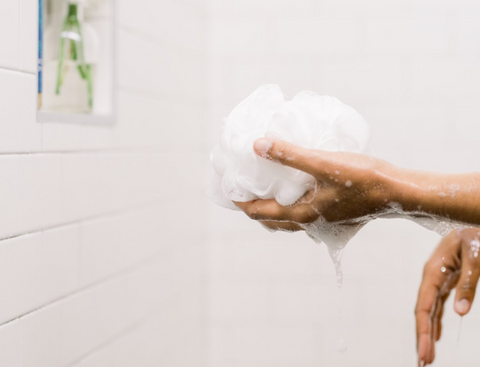
The ingredient is safe to use on skin, but here are some best practices to keep in mind when using it in your hair, skin, and cosmetic products.
Pay Attention to Concentration Levels
The Cosmetic Ingredient Review (CIR) panel has established that the moisturizing ingredient is safe for use in cosmetic products at concentrations up to 25%. Exceeding this threshold may result in an increased risk of adverse effects.
Avoid Dimethicone in Hair Products if You Are Experiencing Hair Loss
For hair, dimethicone can cause residue buildup, leading to a greasy appearance and potential exacerbation of hair loss. Additionally, this residue may contribute to dryness and brittleness at the ends of the hair, potentially causing breakage.
Consult Your Dermatologist
Regarding skin concerns, some individuals may experience silicone allergies or sensitivities, which can manifest as redness, inflammation, itching, swelling, or rashes. Moreover, others may experience silicone sensitivity or irritation, resulting in redness, inflammation, burning or stinging sensations, and itching.
Also, if you’re unsure about a product, always spot treat it in small amounts on your skin first, before administering a full application. That way, you can see if your skin reacts negatively to a small amount of the product first.
The Benefits of Dimethicone
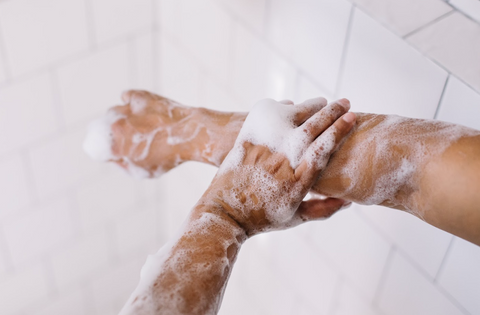
Learn about the benefits of the ingredient in skincare, cosmetic, and haircare products.
Skincare
Board-certified dermatologist Dr. Julie Jackson explains that the moisturizing ingredient provides numerous benefits when used in skincare products such as:
- Moisturizing to prevent hydration lost through skin barrier
- Suitable for many skin types including those who are sensitive or prone to breakouts
- Skin mattifying - provides a silky-smooth finish without excess shine
- Creates a smooth base layer for makeup application
Haircare
- Detangles by reducing friction of hair strands
- Forms a protective barrier around individual hairs to retain moisture
- Provides a glossy shine and softens texture
Makeup and Cosmetics
- Creates a smooth base for additional makeup layers
- Resists water to prevent smudges or fading of makeup
- Helps retain moisture in skin to maintain a healthy glow
Is Dimethicone Safe for the Environment?
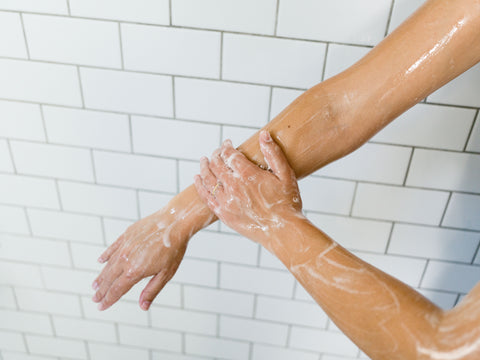
The short answer: No. From its non-biodegradability to its bioaccumulation, there are a number of environmental concerns to keep in mind with the ingredient.
Environmental Impact
The production and usage of this moisturizing ingredient carry several environmental implications that warrant attention. By examining these concerns, we can better understand the potential harm that this synthetic substance may pose to ecosystems and the planet as a whole.
Production and Pollution
The chemical engineering process required to produce synthetic substances can negatively affect the environment. This process may involve the use of harmful chemicals and generate waste, thereby contributing to pollution and other environmental problems. Manufacturing plants must adhere to strict guidelines and waste management practices to minimize the impact of production on the surrounding environment.
Non-Biodegradability
Dimethicone is non-biodegradable, meaning it does not naturally decompose in the environment. This property can result in long-term accumulation, posing a threat to ecosystems and the organisms that inhabit them. As the substance persists in the environment, it can contaminate soil and water sources, leading to potential harm to plants, animals, and humans.
Waterway Contamination
When products containing dimethicone are washed down the drain, they can enter waterways and disrupt aquatic life. The non-biodegradable nature of this moisturizing ingredient means that it can accumulate in water systems, potentially impacting the delicate balance of aquatic ecosystems. This accumulation can lead to changes in water quality and may pose risks to the health and well-being of marine life.
Bioaccumulation
Dimethicone can bioaccumulate, particularly in aquatic organisms. Bioaccumulation occurs when an organism absorbs a substance at a faster rate than it can eliminate, leading to a buildup of the substance in the organism's tissues.
Over time, this accumulation can adversely affect the health of the organism and the overall ecosystem. This issue extends beyond aquatic life, as substances that bioaccumulate can move up the food chain and ultimately impact humans who consume affected organisms.
What are Some Alternatives to Dimethicone?

Here are some eco-friendly alternatives to this moisturizing ingredient that can be found in other skincare and haircare products.
Other forms of silicone
Cyclomethicone and phenyl trimethicone offer a lightweight, non-greasy feel without buildup or environmental issues.
Lexfeel N5
There are very few eco-friendly, dimethicone-free hair products that provide great results. That's why we tasked our biochemists to replicate the effects of the moisturizing ingredient in shampoo – but only using biodegradable ingredients.
Puracy's proud to be one of the first companies to use Lexfeel N5 in our hair care products. Not only is this texture enhancer plant-sourced, 100% sustainable, and biodegradable, but it also replicates the effects of dimethicone and other silicones. Shiny, bouncy hair? You've got it!
Humectants
Glycerin, hyaluronic acid, and panthenol can maintain skin moisture without causing irritation or clogging pores.
Colloidal oatmeal
This finely ground form of oats provides hydration and relief for sensitive or irritated skin.
Squalene
This emollient ingredient, found in plant sources, restores the skin's moisture barrier and provides a smooth, non-greasy texture.
Kaolin
This clay mineral absorbs excess oil and mattifies the skin without clogging pores or causing irritation.
Allantoin
This soothing and moisturizing compound improves the skin's barrier function without potential irritation or environmental harm.
Caprylic/Capric Triglyceride
Derived from coconut oil and glycerin, this ingredient is an excellent emollient and skin-replenishing agent, providing a lightweight, non-greasy texture as a natural alternative to the ingredient in skincare formulations.
Common Dimethicone Misconceptions and Myth-Busting

Like many things, it’s easy to create headlines that demonize one thing while extolling the virtues of another. And like everything else, the truth is usually somewhere in the middle. Overall, the moisturizing ingredient is relatively safe on skin and is not linked to cancer or allergies.
However, the ingredient certainly has drawbacks, especially from an environmental standpoint, but it might be the right choice for some people so make a decision based on the available information and your own values.
Myth: Dimethicone clogs pores
A common misconception is that the moisturizing ingredient clogs pores and leads to acne. In reality, dimethicone is non-comedogenic, meaning it does not clog pores or cause breakouts. However, individuals with acne-prone skin should patch test products containing the ingredient to ensure it does not exacerbate existing conditions.
Myth: Dimethicone traps sweat
Some people believe that this moisturizing ingredient acts as a barrier, trapping sweat against the skin and causing discomfort. This is not entirely accurate, as dimethicone forms a breathable film on the skin, allowing for the normal evaporation of sweat. It is important to consider individual skin types and preferences when selecting products containing the ingredient or its alternatives.
Looking for Sustainable, Effective Haircare Without Dimethicone?
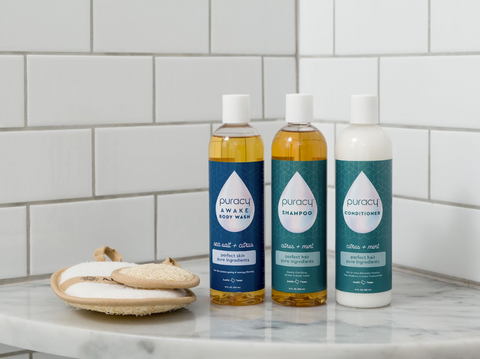
At Puracy, our commitment to providing safe, effective, and eco-friendly personal care products is at the core of our mission. This is why we have made the conscious decision not to use this moisturizing ingredient in our formulations. Instead, we have turned to innovative, sustainable alternatives that align with our values and priorities.
Our focus on ingredients extends beyond merely replacing dimethicone. We are dedicated to carefully selecting ingredients that are environmentally friendly, safe for people and pets, and gentle on the planet. Puracy Natural Shampoo and Conditioner are rare examples of silicone-free hair products that leave all hair types moisturized, bouncy, and shiny.
By providing this balanced information on dimethicone, we aim to empower our customers to make informed decisions about the ingredients they use in their personal care routines.

